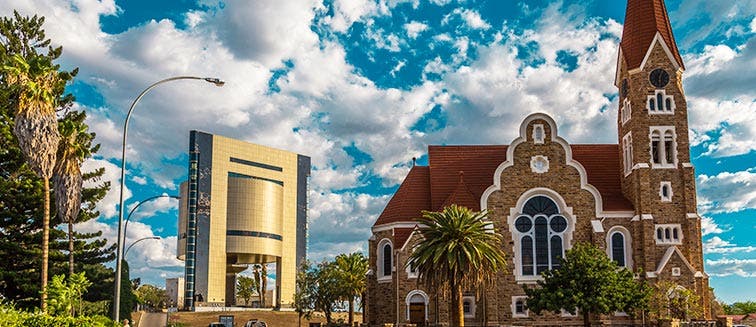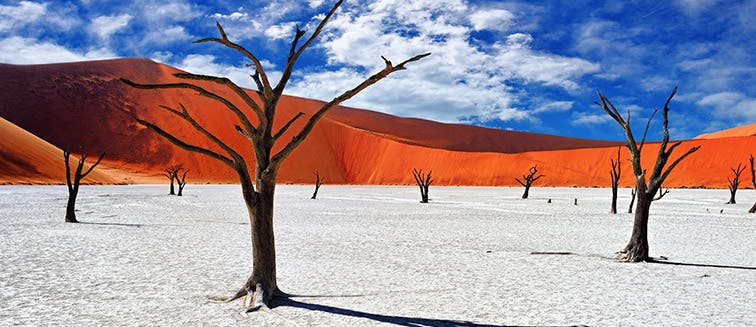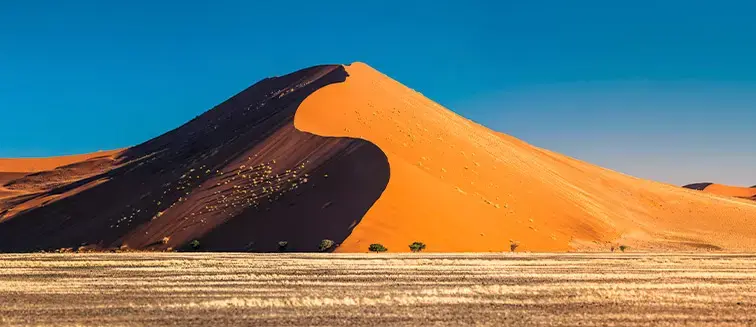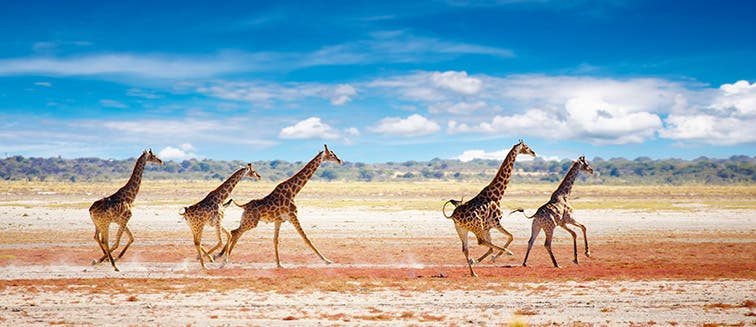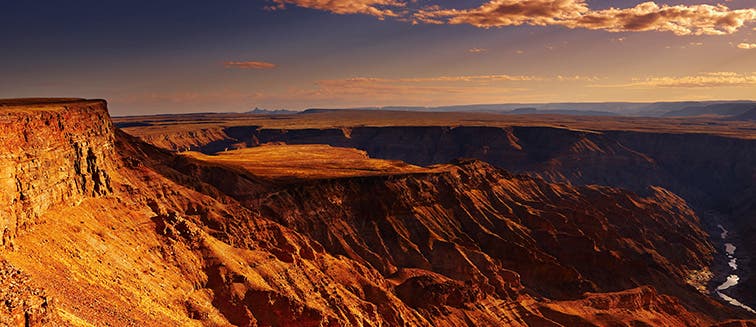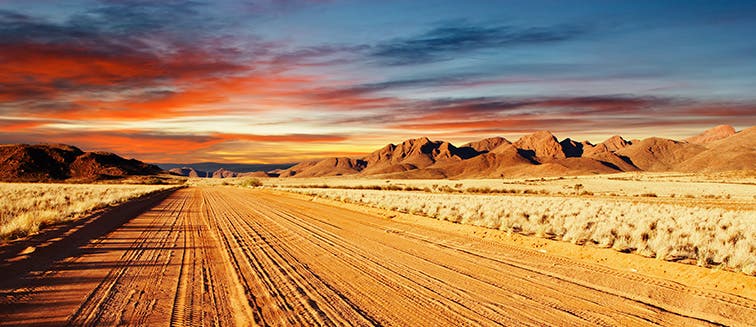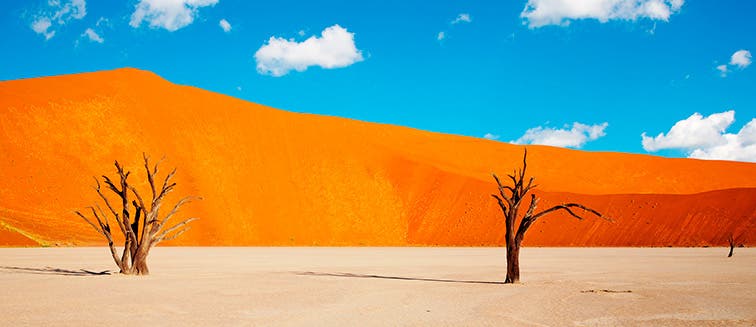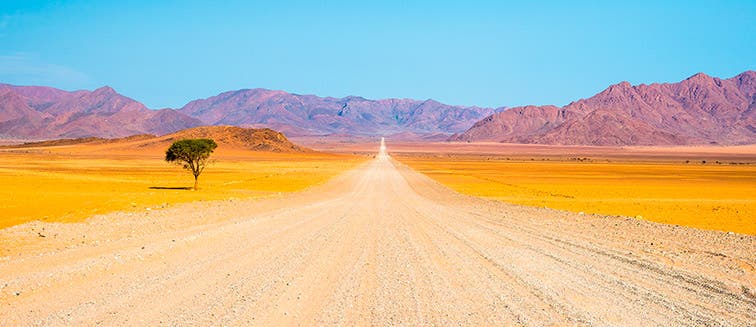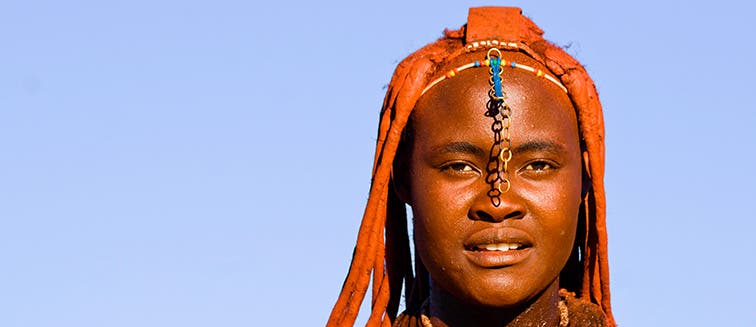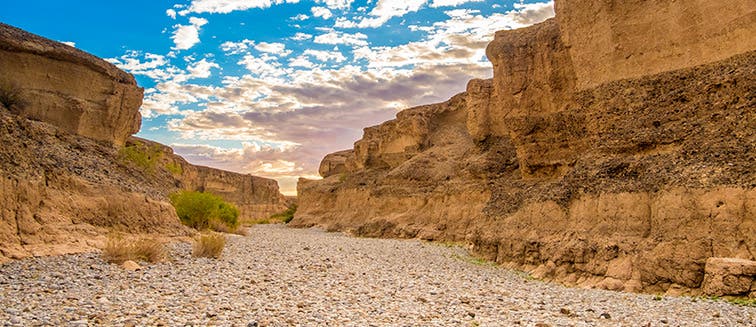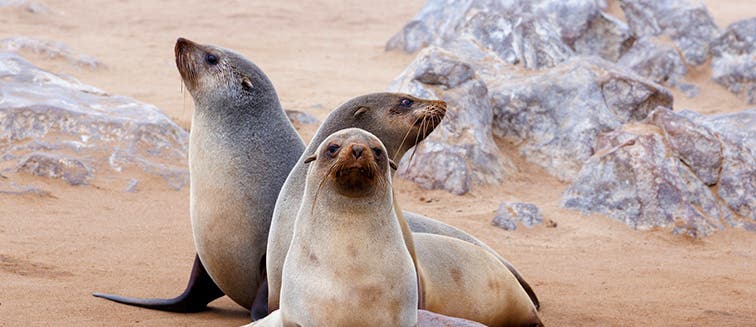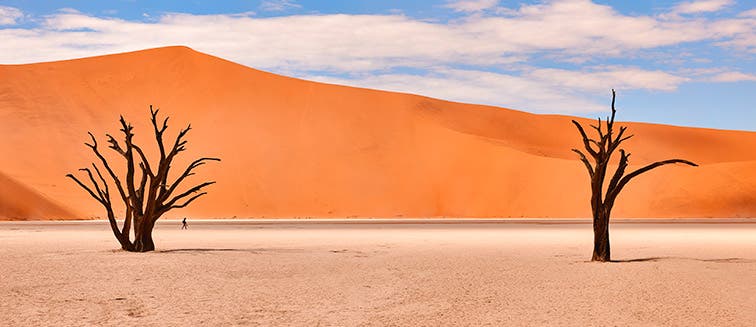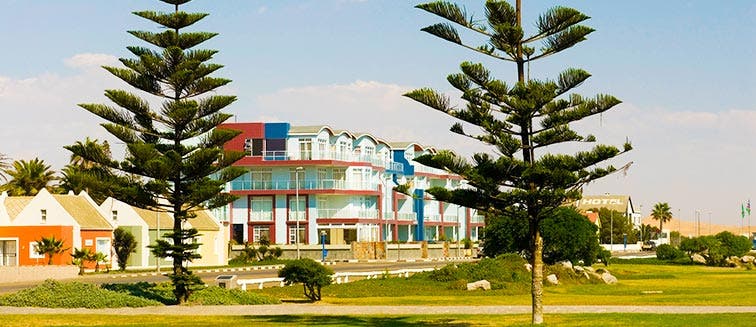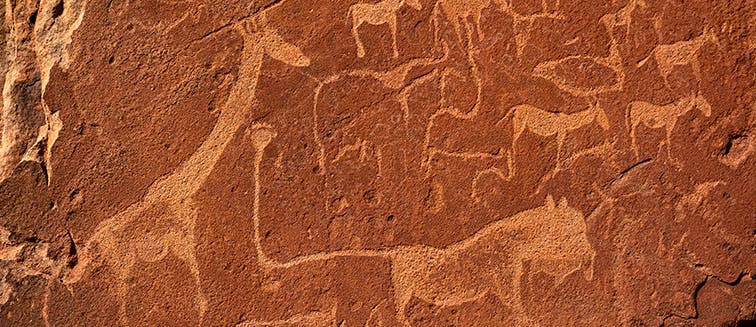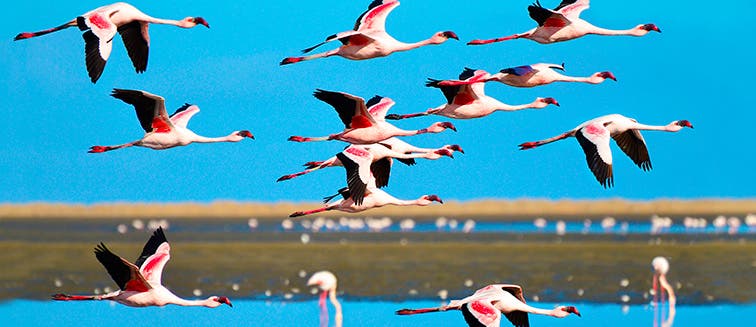Africa
Americas
Asia
Europe
Oceania
Holidays to Europe (95 available)
Albania(2)
Austria(6)
Baltic States(3)
Belgium(5)
Croatia(3)
Cyprus(1)
Czech Republic(5)
Denmark(1)
England(10)
Finland(2)
France(12)
Germany(6)
Greece(12)
Holland(5)
Hungary(4)
Iceland(6)
Ireland(9)
Italy(13)
Montenegro(1)
Northern Ireland(2)
Norway(9)
Portugal(10)
Romania(1)
Scotland(6)
Slovakia(1)
Spain(9)
Sweden(2)
Switzerland(4)
By Season
By Interest
By Group
Advisors hotline: +1 778-743-2337
Mon - Fri: 9am - 9pm EST
Saturday: 9am - 6pm EST
Sunday: Closed
What to see in Namibia
Windhoek
Tourist attractions Windhoek
Located in the centre of the country, Windhoek is the capital of Namibia and has a population of 280000 inhabitants.
In its ordered grid pattern, the German aesthetic is combined with the African environment and the Central European legacy merges with the heart of Africa, echoing its varied traditions and lifestyles.
90 percent of the population is Christian, which is why the Lutheran church of Christ is the most symbolic building in the city. Its neo-Romanesque style and its refined modernist elements, give it a coquettish and fine appearance, as well as its neighbour, the Cathedral of Santa María, which is flanked by two towers.
In front of the first is the Reiterdenkmal or "monument to the knight", which is a large equestrian statue of granite representing a German knight of the colonial era. Next to it are the beautiful gardens of the Parliament and beyond is the Parliament itself.
The Alte Feste is the oldest building in the city. This fort was built by the Germans around 1890 to house the colonial military troops. Today it is part of the National Museum of Namibia, a highly recommended museum.
The main road, Independence Avenue, crosses the entire city. In it is the Post Street Mall, a modern shopping centre with shops of all kinds and on the way out the city, the travelling African vendors offer their jewellery and elaborate handicrafts such as tribal masks on their market stalls. On this road, you can find the Zoo Park, a meeting place for families who want to enjoy a quiet environment.
Katutura means in Herero "The place where no one can live" and is the neighbourhood that was displaced by the black population during apartheid in the 50s. It is the most traditional African area and also the most genuine and lively. It's the life, the colour and the soul of Windhoek. The businesses are varied, from markets to hairdressers and craft shops.
Local delights can be savoured in the city's many restaurants, such as exotic meats like kudu, springbok, oryx or ostrich served with beer brewed in accordance with the law of purity or "Reinheitsgebot" in German, which dates back to the 16th century and established only three ingredients to be used in beer brewing: water, barley and hops.
Visiting the capital of Namibia is a welcome discovery. Its clean environment, relaxed pace, the friendliness of its people and the multi-ethnic atmosphere makes it unique.
OUR BEST TRIPS TO WINDHOEK
YOU ALSO LIKE
Botswana
2 Trips
Eswatini
2 Trips
Namibia
4 Trips
South Africa
15 Trips
Zimbabwe
7 Trips
Kenya
13 Trips
Tanzania
8 Trips
Ethiopia
1 Trips
Uganda
4 Trips
Mozambique
1 Trips
Senegal
Notify me when available
Rwanda
1 Trips
Morocco
8 Trips
Egypt
15 Trips
Tunisia
5 Trips
Mauritius
2 Trips
Madagascar
1 Trips
Seychelles
Notify me when available
Reunión
Notify me when available
Tourist attractions namibia
Points of interests
- Trips to Deadvlei
- Trips to Dune 45
- Trips to Etosha National Park
- Trips to Fish River Canyon
- Trips to Kalahari Desert
- Trips to Namib Desert
- Trips to Namib Naukluft
- Trips to Population of the Himba & Herero
- Trips to Sesriem Canyon
- Trips to Skeleton Coast & Cape Cross
- Trips to Sossusvlei
- Trips to Swakopmund
- Trips to Twyfelfontein
- Trips to Walvis Bay
- Trips to Windhoek
Other Points of interests
- Trips to Addo National Park
- Trips to Aquila Private Game Reserve
- Trips to Blyde River Canyon
- Trips to Cape of Good Hope
- Trips to Cape Town
- Trips to Central Kalahari Game Reserve
- Trips to Chobe National Park
- Trips to Durban
- Trips to Gaborone
- Trips to Ghanzi
- Trips to Johannesburg
- Trips to Kasane
- Trips to Kirstenbosch Botanical Garden
- Trips to Knysna
- Trips to Kruger National Park
- Trips to Lake Kariba
- Trips to Makgadikgadi Pans
- Trips to Maun
- Trips to Moremi Game Reserve
- Trips to Okavango Delta
- Trips to Oudtshoorn
- Trips to Península de Cabo
- Trips to Playa de Boulders
- Trips to Port Elizabeth
- Trips to Pretoria
- Trips to Rovos Rail
- Trips to Table Mountain
- Trips to Victoria Falls
- Trips to Wilderness
Countries Nearby
- Botswana Trips
- Egypt Trips
- Eswatini Trips
- Ethiopia Trips
- Kenya Trips
- Madagascar Trips
- Mauritius Trips
- Morocco Trips
- Mozambique Trips
- Namibia Trips
- Reunión Trips
- Rwanda Trips
- Senegal Trips
- Seychelles Trips
- South Africa Trips
- Tanzania Trips
- Tunisia Trips
- Uganda Trips
- Zimbabwe Trips
Trip Styles
- Egypt Cultural Tour Packages Trips
- Family Egypt Trips
- Egypt Nature Vacation Packages Trips
- Kenya Safari Tours Trips
- Family Kenya Trips
- Kenya Nature Tours Trips
- Discover Morocco Culture Tours Trips
- South Africa Cultural Tours Trips
- South Africa Safari Tours Trips
- Tanzania Safari Tours Trips
- Uganda Safari Tours Trips
